When hunting for the perfect motherboard for your processor and system, you definitely need to consider its features and capabilities. Today we are going to look at the Asus Crosshair V Formula-Z, a feature-rich motherboard based on AMD 990FX Chipset, with Socket AM3+, and is best paired with AMD FX “Vishera” processors. The Asus Crosshair V Formula-Z is also an upgraded/updated version of the previous Crosshair V Formula, loaded with more features than its predecessor. For AMD lovers, specially those who are planning to build a high end AMD-based system, I’m pretty sure you would want to know more about the Asus Crosshair V Formula-Z.
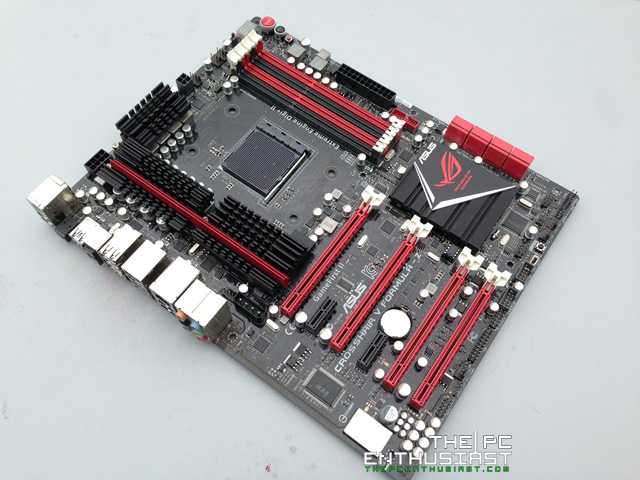
Asus Crosshair V Formula-Z Review
The Asus Crosshair V Formula-Z is not a new motherboard, in fact it has been in the market since Q3-Q4 of 2012. But until today, it is still the popular choice for AMD FX Series processors. It features AMD 990FX chipset and AMD SB950 southbridge. If you have seen the previous Crosshair V Formula, you will notice some difference based on the physical appearance of the two motherboards alone. First of all, the logo in the southbridge heatsink looks different, and the Start, Reset and Go Button are now located near the DIMM slots. There are now 8 SATA 6Gbps ports (instead of 7), and the new version uses SupremeFX III instead of SupremeFX X-Fi 2 with Red LED path and EMI shielding. It now features Extreme Engine DiGi+ II with 8+2+2 DiGi Phase, and maximum memory OC can reach up to 2400MHz and several other improvements. Below is a side by side image of the Crosshair V Formula-Z and Crosshair V Formula.
We won’t be focusing on the difference between the old and newer Crosshair V Formula-Z in this review, since obviously the newer Formula-Z is the better option. So moving along, let’s check out the detailed specifications of the Asus Crosshair V Formula-Z and take a closer look on the motherboard below.
Asus Crosshair V Formula-Z Specifications
| CPU | AMD AM3+ FX™/Phenom™ II/Athlon™ II/Sempron™ 100 Series Processors Supports AM3+ 32 nm CPU Supports CPU up to 8 cores Supports CPU up to 140 W AMD Cool ‘n’ Quiet™ Technology |
| Chipset | AMD 990FX/SB950 |
| Memory | 4 x DIMM, Max. 32GB, DDR3 2400(O.C.)/2133(O.C.)/2000(O.C.)/1800(O.C.)/1600/1333/1066 MHz ECC, Non-ECC, Un-buffered Memory Dual Channel Memory Architecture |
| System Bus | Up to 5.2 GT/s HyperTransport™ 3.0 |
| Multi-GPU Support | Supports NVIDIA® Quad-GPU SLI™ Technology Supports NVIDIA® 3-Way SLI™ Technology Supports AMD 3-Way CrossFireX™ Technology |
| Expansion Slots | 3 x PCIe 2.0 x16 (dual x16 or x16/x8/x8) 1 x PCIe 2.0 x16 (x4 mode) 2 x PCIe 2.0 x1 |
| Storage | AMD SB950 controller : 6 x SATA 6Gb/s port(s), red Support Raid 0, 1, 5, 10 ASMedia® ASM1061 controller : 2 x SATA 6Gb/s port(s), red 2 x eSATA 6Gb/s port(s), red |
| LAN | Intel®, 1 x Gigabit LAN Controller(s) |
| Audio | SupremeFX III built-in 8-Channel High Definition Audio CODEC – Supports : Jack-detection, Multi-streaming, Front Panel Jack-retasking Audio Feature : – SupremeFX Shielding™ Technology – 1500 uF Audio Power Capacitor – Gold-plated jacks – Blu-ray audio layer Content Protection – DTS Ultra PC II – DTS Connect – Optical S/PDIF out port(s) at back panel |
| USB Ports | ASMedia® USB 3.0 controller : 6 x USB 3.0 port(s) (4 at back panel, blue, 2 at mid-board) AMD SB950 controller : 12 x USB 2.0 port(s) (8 at back panel, black+white, 4 at mid-board) |
| ROG Exclusive Features | ROG Connect : – RC Diagram – RC Remote – RC Poster – GPU TweakIt Extreme Engine Digi+ II : – 8 + 2 phase power design – 2 -phase Memory power design UEFI BIOS features : – ROG BIOS Print – GPU.DIMM Post iROG Extreme Tweaker Overclocking Protection : – COP EX (Component Overheat Protection – EX) – ASUS C.P.R.(CPU Parameter Recall) |
| Special Features | ASUS Power Design : – ASUS EPU TurboV ASUS Exclusive Features : – AI Suite II – Ai Charger+ – USB 3.0 Boost – Disk Unlocker ASUS Quiet Thermal Solution : – ASUS Fan Xpert ASUS EZ DIY : – ASUS O.C. Profile – ASUS CrashFree BIOS 3 – ASUS EZ Flash 2 – ASUS MyLogo 3 ASUS Q-Design : – ASUS Q-Shield – ASUS Q-Code – ASUS Q-LED (CPU, DRAM, VGA, Boot Device LED) – ASUS Q-Slot – ASUS Q-DIMM – ASUS Q-Connector |
| Operating System Support | Windows® 8.1 Windows® 8 Windows® 7 Windows® Vista Windows® XP |
| Back I/O Ports | 1 x PS/2 keyboard/mouse combo port(s) 2 x eSATA 6Gb/s 1 x LAN (RJ45) port(s) 4 x USB 3.0 8 x USB 2.0 (one port can be switched to ROG Connect) 1 x Optical S/PDIF out 6 x Audio jack(s) 1 x Clear CMOS button(s) 1 x ROG Connect On/ Off switch(es) |
| Internal I/O Ports | 1 x USB 3.0 connector(s) support(s) additional 2 USB 3.0 port(s) 2 x USB 2.0 connector(s) support(s) additional 4 USB 2.0 port(s) 1 x TPM connector(s) 8 x SATA 6Gb/s connector(s) 2 x CPU Fan connector(s) 3 x Chassis Fan connector(s) 3 x Optional Fan connector(s) 1 x S/PDIF out header(s) 1 x 24-pin EATX Power connector(s) 1 x 8-pin ATX 12V Power connector(s) 1 x 4-pin ATX 12V Power connector(s) 1 x Front panel audio connector(s) (AAFP) 1 x System panel(s) 1 x DirectKey Button(s) 1 x DRCT header(s) 8 x ProbeIt Measurement Points 3 x Thermal sensor connector(s) 1 x EZ Plug connector(s) (4-pin Molex power connector) 1 x Power-on button(s) 1 x Reset button(s) 1 x Go Button(s) 1 x FastBoot switch(es) |
| Accessories | User’s manual I/O Shield 6 x SATA 6Gb/s cable(s) 1 x 3-Way SLI bridge(s) 1 x SLI bridge(s) 1 x CrossFire cable(s) 1 x Q-connector(s) (2 in 1) 1 x ROG Connect cable(s) 1 x 12 in 1 ROG Cable Label(s) |
| BIOS | 64Mb Flash ROM, UEFI BIOS, PnP, DMI2.0, WfM2.0, SM BIOS 2.5, ACPI2.0a, Multi-Language BIOS |
| Manageability | WOL by PME, WOR by PME, PXE |
| Support Disc | Drivers GameFirst II Kaspersky® Anti-Virus DAEMON Tools Pro Standard ROG CPU-Z ASUS WebStorage ASUS Utilities (AI SUITE II/TurboV EVO/ASUS Update) |
| Form Factor | ATX Form Factor 12 inch x 9.6 inch ( 30.5 cm x 24.4 cm ) |
Asus Crosshair V Formula-Z: A Closer Look
The Asus Crosshair V Formula-Z has a similar packaging compared to other Asus ROG series motherboards. A brief specifications and I/O panel informationcan be seen at the back of its box.
The box has a flip cover revealing the board through a transparent plastic covering. The box contains two compartments, one for the motherboard and another for the accessories. A list of accessories included in the box can be seen in the specifications table above.
The pictures above show the front and rear PCB of the Crosshair V Formula Z. If you notice it lacks mounting clip for AM3+ coolers. There should be a plastic mount for the CPU cooler, but it was not included in the sample I got. I’m not the first one to test this specific motherboard, and the previous reviewers might have forgotten to return it. But that’s okay since I won’t be using an air cooler for this test.
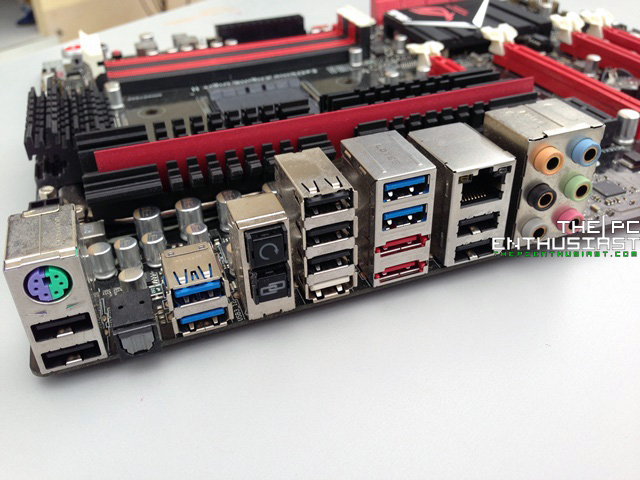
Here is a good view of the rear I/O panel. If you noticed there are no video out port(s) since neither the processor for this board, or the motherboard itself has a built in graphics processor. A discrete graphics processor is required to use the Crosshair V Formula-Z.
The photos above shows a closer look at the top and bottom portion of the motherboard. The newer Crosshair V Formula-Z requires a 8pin + 4pin to power the CPU portion. But I was able to use the motherboard using an 8pin connector only since my PSU is limited. Unfortunately, I wasn’t able to maximize this board’s potential with the lacking power connector. There is also an onboard 4-pin power connector that adds power and stability specially if you are planning to install multiple graphics cards. This board is capable of up to 3-Way SLI or 3-Way CrossFireX and Quad GPU SLI setup, thanks to the 4x PCIE 2.0 slots.
The Q Code Display, Slow Switch, LN2 Jumper, Start, Reset and Go button is located at this portion. There is an 8pin + 4pin power connector that powers the CPU. The motherboard will function even if you connect just the 8pin connector. But if you want to maximize its overclocking potential, you need to connect an additional power via the 4pin connector.
The Asus Crosshair V Formula-Z can now overclock DDR3 memory modules up to 2400MHz+, unlike with its previous model which can OC mems up to 2133MHz only. It also now has 8 SATA 6Gbps ports.
Here’s a view of the socket AM3+ and an AMD FX 8350 sitting on it.
From the left most photo you see an iROG chip, there are two actually, and both of them are programmable and is responsible for saving your OC profiles. The small TPU chip right beside the iROG chip can help you automatically overclock your system to a stable state. Next photo is the DiGi+ II / EPU chip which controls the power distribution. The third photo shows the heart of the Crosshair V Formula-Z’s audio processor, the SupremeFX III. And the last photo shows the red LED path connecting the rear audio ports and the SupremeFX III. It’s actually has an EMI shielding that helps improve audio quality.
The photo above shows the heatsink for the southbridge, northbridge and MOSFETs.
Removing the heatsinks will reveal the MOSFETs, as well as the north and southbridge chips.
Asus Crosshair V Formula-Z UEFI BIOS
The UEFI BIOS in the Asus Crosshair V Formula-Z, as expected, features Red ROG theme. And like most of Asus motherboards there is an EZ mode and an advanced mode. The EZ mode is very much easy to understand. However that is not the same case with the Advanced mode. There are a lot of options that can be found in the Advanced mode, and most of them has something to do with overclocking, system tweaking and tuning, saving OC profiles and the likes. It might be confusing at first, with all the options and sub menus, but you will get a hang of it eventually specially if you regularly visit the Advance configurations.
Test Setup
In testing the Asus Crosshair V Formula-Z, I used an AMD FX 8350 8-core processor, which is quite a popular processor. I am also using an NZXT Kraken X60 as its CPU cooler since the sample I got didn’t have a mounting for the stock CPU cooler/heatsink. And if you are using a powerful processor such as the FX 8350 or higher, I would definitely recommend that you use a high performance heatsink or a water cooling solution, since the stock cooler is definitely not enough to cool the processor, specially when overclocking.
I know this motherboard has tons of overclocking potential that can really push the processor to its limit, unfortunately I was limited with my power supply. It didn’t have an additional 4pin connector which is quite required if you will be overclocking the system. In the end I was only able to reach the AMD FX 8350’s Turbo speed of 4.2GHz. Below are the rest of the specifications used in the test.
Operating System: Windows 7 Ultimate 64bit
Motherboard: Asus Crosshair V Formula Z
Processor: AMD FX 8350
CPU Cooler: NZXT Kraken X60
Memory: 2x 4GB G.Skill RipJaws X
Graphics card: Asus ROG MARS760-4GD5
Hard Drive: Samsung 830 128GB for the OS and WD RE 4TB for game files
Power Supply: Corsair HX650 80 Plus Gold
Case: Cooler Master HAF XM
Case Fans Installed: 3x Cooler Master SickleFlow 120mm, 2x NZXT 140mm for the Kraken
Above are photos of how the test system looked like, pretty cool if you ask me.
Asus Crosshair V Formula-Z Benchmarks
Below are screenshots of the benchmark results that I got while testing the motherboard. I have run the benchmarks several times and I took the result that is close to their average.
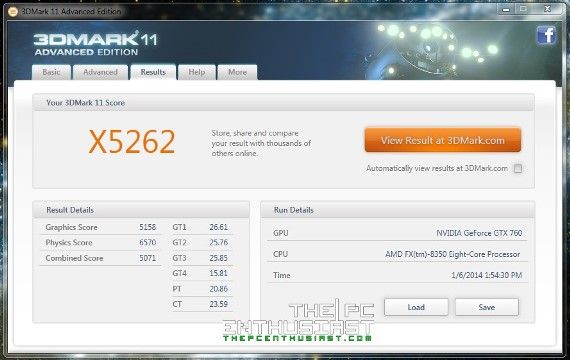
The 3D Mark Advance benchmark results below heavily depend on the graphics card. Below is what I got while using the Asus Crosshair V Formula-Z with an Asus ROG MARS 760 dual graphics card.

Below are benchmark results from Cinebench R15 and wPrime. Honestly these are not the best results for the Asus Crosshair V Formula-Z with and AMD FX 8350. I could have gotten higher scores, and I’ve seen better results than this, unfortunately I was limited with the other components that I currently have while testing the motherboard and processor.
Below is a screenshot of Hardware monitor while I was testing the system. As you can see, the NZXT Kraken X60 does a pretty good job cooling the AMD FX 8350, and I’m pretty sure you can achieve higher clock speeds with an AIO water cooling like the Kraken X60.
Price and Availability
In Philippines, the Asus Crosshair V Formula-Z sells for around Php 12,300. That is the cheapest price I could find here in the Philippines. Meanwhile it sells for around $239.99 in US and has received a 4.5 out of 5 star rating from the customer who bought this motherboard. This is actually one of the most expensive (if not the most expensive) AMD 990FX based motherboard that I encountered. But this is also the one AMD 990FX motherboard that comes with the most features that most PC enthusiasts, extreme overclockers and AMD lovers would find very much attractive.
Asus Crosshair V Formula-Z Review Conclusion
Asus has done a really good job with the Asus Crosshair V Formula-Z and obviously a lot of research and engineering has been spent to produce this product. This motherboard is all about design, looks (eye candy) and most importantly performance. Some or many would say that this motherboard is expensive compare to other AM3+ motherboards, and I don’t disagree with that. In fact most AM3+ casual users / gamers wouldn’t need most of the features in this motherboard, that’s why they won’t see the value. But Asus ROG motherboards are not about value for money or bang for the buck. There are no sacrifices here or trim downs, instead it’s all about high performance and high grade components ensuring that you will get the most out of your CPU’s capacity and other components as well.
The Asus Crosshair V Formula-Z is also a great upgrade or improvement compared to its predecessor (the Crosshair V Formula). This is also the motherboard that I saw with a lot of BIOS tweaking, highest phase count for AMD 990, and highly capable of extreme overclocking using liquid nitrogen cooling. Although the AMD FX 8350 8-Core processor is a great CPU, I would still recommend that you pair the Asus Crosshair V Formula-Z with a much powerful AMD processor like the AMD 9590 8-Core processor. With it you can fully realize the capability of this motherboard.
The only thing that I didn’t like about this setup is that it consumes a lot of power. The Thermal Design Power or TDP of the AMD FX 8350 alone is 125W, meanwhile the AMD FX 9590 is a whooping 220W. But that’s not Asus fault, since AMD designed their processor that way. If you look at its Intel counterpart, Asus’ ROG Z87 series motherboards are also cutting edge motherboards like the Crosshair V Formula-Z. I highly recommend the Asus Crosshair V Formula-Z to PC enthusiasts, gamers, and overclockers whose systems are based on AMD.

This Asus Crosshair V Formula-Z Review first appeared on ThePCEnthusiast, and was republished by the reviewer here.

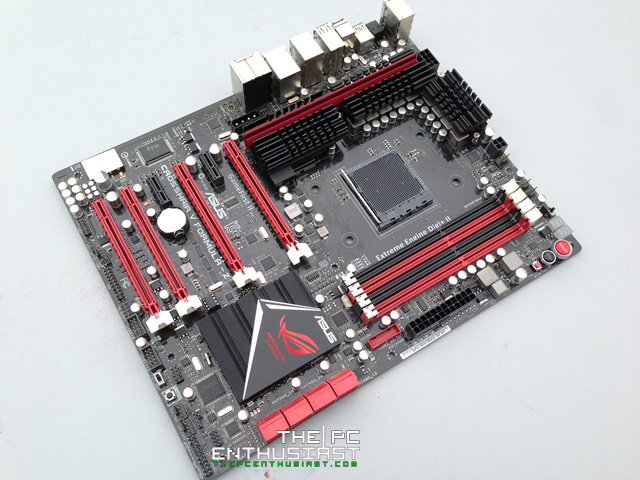
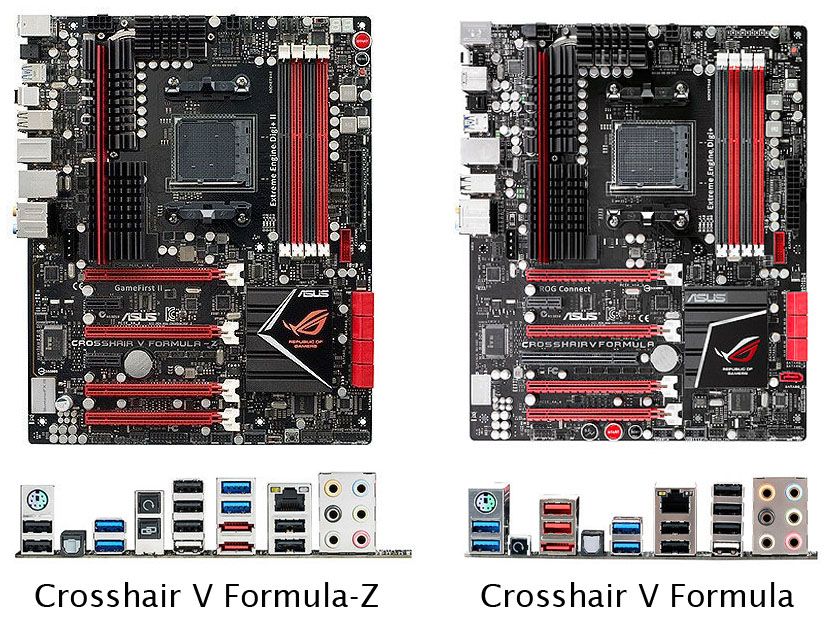
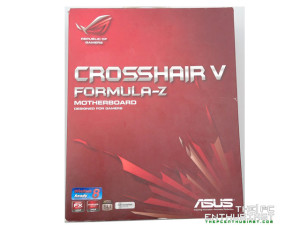
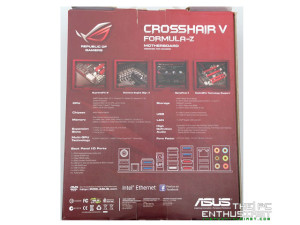
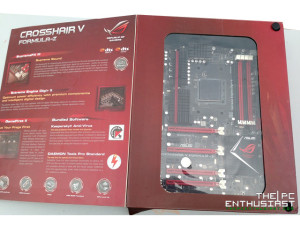
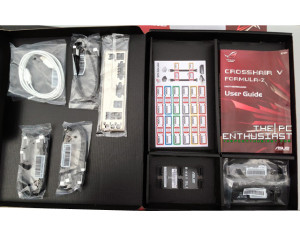
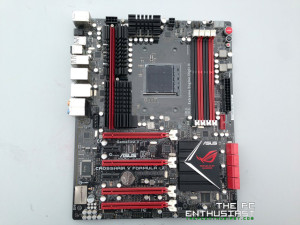
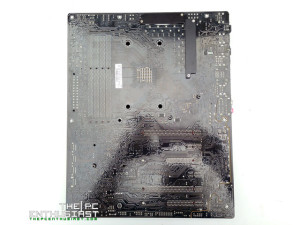
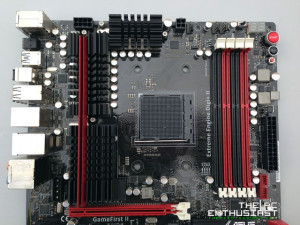
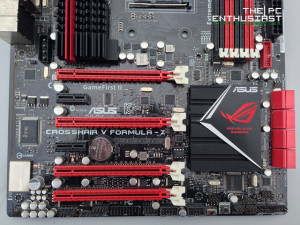
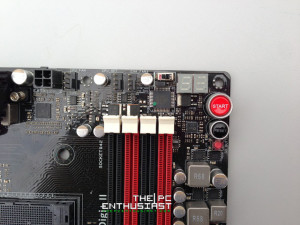
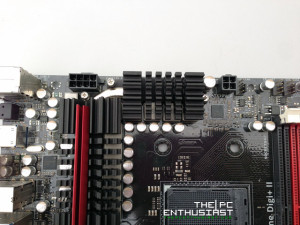
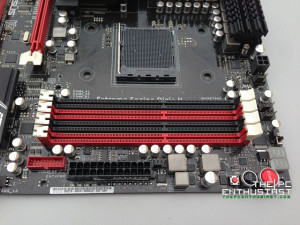
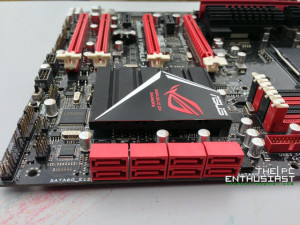
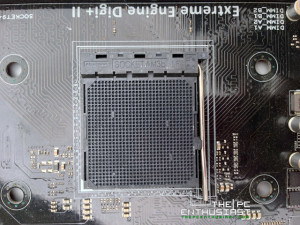
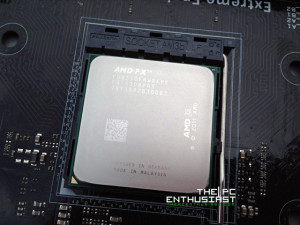
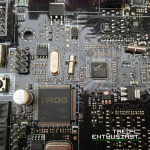
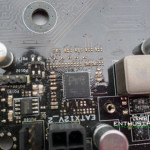
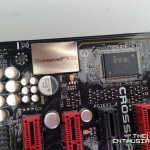
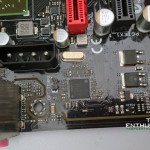
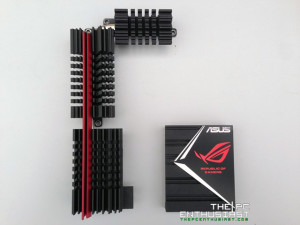
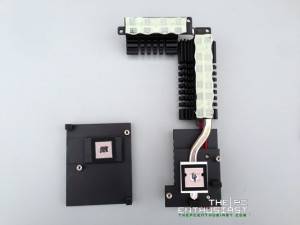
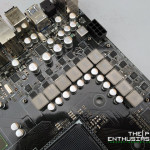
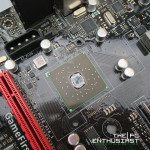
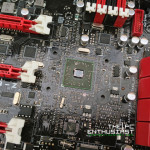
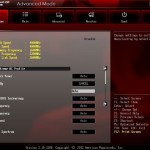
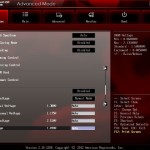
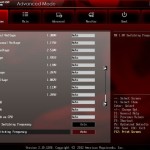


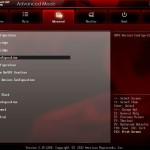
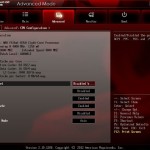
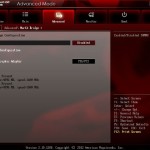


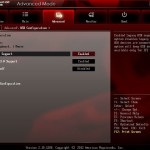

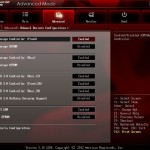
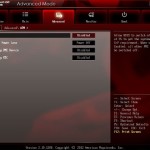



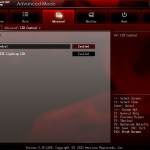
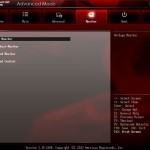
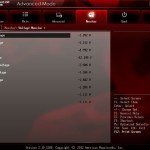
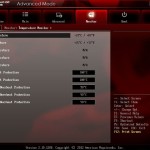
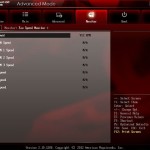
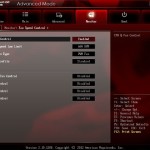
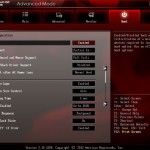
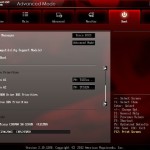
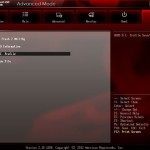

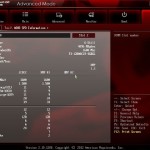
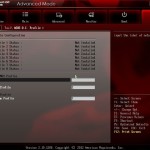
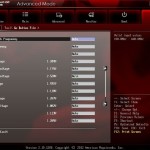
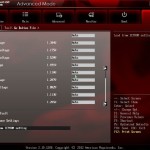

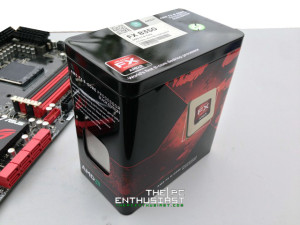
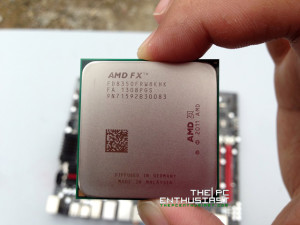
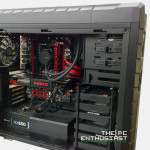
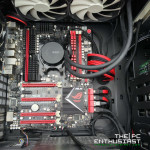
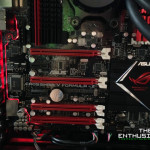
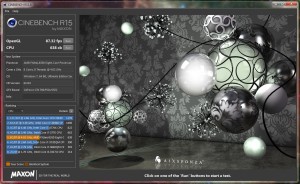
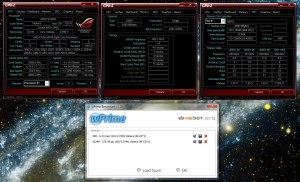
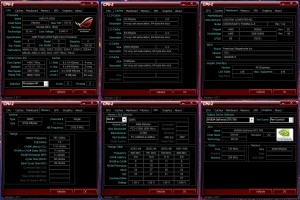
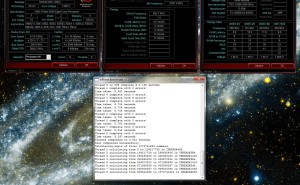
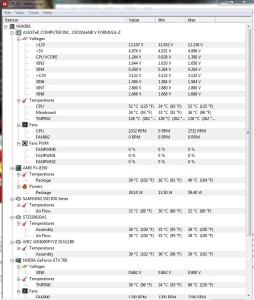
Leave a Reply